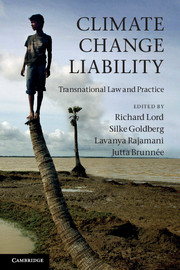Book contents
- Frontmatter
- Contents
- Contributors and Editorial Board members
- Foreword
- Acknowledgements
- Abbreviations
- Part I Legal, scientific and policy aspects
- Part II National laws
- Asia and Pacific
- Africa and the Middle East
- Europe and Eurasia
- 14 European Union Law
- 15 Germany
- 16 Poland
- 17 England
- 18 Russia
- North America
- Central and South America
- Selected resources
- Index
- References
14 - European Union Law
from Europe and Eurasia
Published online by Cambridge University Press: 05 June 2012
- Frontmatter
- Contents
- Contributors and Editorial Board members
- Foreword
- Acknowledgements
- Abbreviations
- Part I Legal, scientific and policy aspects
- Part II National laws
- Asia and Pacific
- Africa and the Middle East
- Europe and Eurasia
- 14 European Union Law
- 15 Germany
- 16 Poland
- 17 England
- 18 Russia
- North America
- Central and South America
- Selected resources
- Index
- References
Summary
The European Union legal system
14.01The European Union (‘EU’) is a regional integration organisation consisting at present of twenty-seven European Member States that have transferred part of their sovereignty to the EU. The EU is based on international treaties – the Treaty on European Union (‘TEU’) and the Treaty on the Functioning of the European Union (‘TFEU’) – and its power to act is laid down in the various provisions of these treaties; there is no ‘common law’ applicable to it. In this regard, the EU is similar to a civil law country.
14.02A number of specific features distinguish the EU from traditional international organisations. First, the TEU and TFEU address not only the relations between the Member States and the EU institutions, but also establish rights and obligations for individuals. Second, though legislative decisions in climate change matters are taken by majority vote in the European Parliament – whose members are directly elected – and the Council, which consists of the governments of the twenty-seven Member States, the adoption of legislation on climate change is only possible on the basis of a proposal by the European Commission. The Commission oversees the application of EU law in the Member States, and has the duty to act in the general interest of the EU rather than in the interest of the individual Member States.
- Type
- Chapter
- Information
- Climate Change LiabilityTransnational Law and Practice, pp. 351 - 375Publisher: Cambridge University PressPrint publication year: 2011

